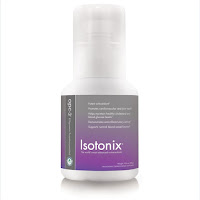Curcumin supplements prevent type 2 diabetes
By David Liu, PHD
Saturday Aug 4, 2012 (foodconsumer.org) -- Eating curry or taking curcumin supplements helps reduce risk of type 2 diabetes mellitus, according to a new study published in the journal Diabetes Care. Curcumin is an ingredient found in turmeric which is used in curry, a food commonly used in India.
The study showed one of pre-diabetics who took curcumin supplements every day for nine months developed type 2 diabetes mellitus while 16 percent of pre-diabetics who took a dummy pill for the same period developed the disease.
For the study, researchers of Srinakharinwirot University in Bangkok recruited 240 people with pre-diabetes who were randomized into two groups with 120 each. One group were given six capsules of curcumin per day and the other a placebo for nine months.
At the end of the study, 16 percent of placebo users developed type 2 diabetes mellitus whereas none of the curcumin users developed the disease. Subjects in the study group but not those in the control group were also found to have lost weight.
The Thai researchers believe turmeric has anti-inflammatory properties that help protect insulin-producing beta cells in the pancreas from damage and improve their efficiency.
 |
About 24 million people live with type 2 diabetes mellitus in the United States alone. Another 20 million Americans suffer pre-diabetes, a condition in which a person has a problem with controling blood sugar, but not as severely as in the case of type 2 diabetes.
---------------------------------------
From Shop.com
There are many curcumin products on the market, but Curcumin Extreme™ with BCM-95® has superior bioavailability and absorption. BCM-95 contains the natural spectrum of the turmeric rhizome and is 100 percent natural. Curcumin Extreme promotes liver detoxification, promotes healthy glutathione levels and normal cellular regeneration. Taking Curcumin Extreme every day can help detoxify impurities in your body that build up over time.*
Curcumin Extreme also includes 167mg of broccoli seed extract, a powerful source of sulphoraphane glucosinolates. Sulforaphanes support the normal production of Phase II liver detoxification enzymes, including glutathione synthase, heme-oxygenase and catalase. Sulforaphanes also support gene transcription, the process by which genetic information is copied from DNA to RNA. They also support the body’s natural defense systems. Glutathione is the master antioxidant in the human body, which serves to preserve and protect the brain and other body tissues by protecting them from the damage of free radicals. Furthermore, glutathione recycles vitamins C and E, which are also powerful antioxidants.*
Primary Benefits of Curcumin Extreme™*:
- Promotes normal activity of NF-KappaB
- Supports normal liver detoxification activity
- Supports overall liver health
- Promotes apoptosis in unhealthy cells
- Promotes normal cell cycle activity
- Helps maintain overall cell integrity
- Promotes normal cellular regeneration
- Helps maintain healthy glutathione levels
- Supports normal glutathione synthesis
- Promotes the normal production of detoxification enzymes
- Supports the body’s natural ability to produce detoxification enzymes
- Promotes normal levels of detoxification enzymes that scavenge harmful toxins in the body
- Helps to maintain neurological health as we age
- Helps to maintain good cognitive health as we age
- Promotes normal immune cell-brain (neuron) interactions in order to maintain cognitive health
- Promotes neurological health
- Protects neurons from the negative effects of free radicals
- Powerful antioxidant
- Protects the body from the negative effects of free radicals
- Promotes free-radical protection
- Promotes a strong immune system
Try it today --- Curcumin Extreme by clicking here






 Vitamin D with K2
Vitamin D with K2